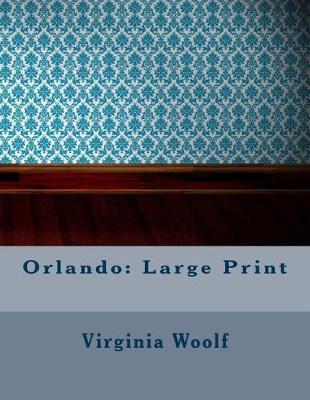Reviewed by brokentune on
What a ride! Virginia Woolf and I don't often get on. At all. I usually despair over her stream-of-consciousness style of writing and her characters. So, I approached Orlando with some trepidation. And what happens? Woolf pulls this masterpiece of a romp out of the hat which shows not only that she was a very clever writer but that she also had a delicious sense of humor.
Of course, it may be that that side of hers does only show in Orlando because it is a mock biography of and a tribute to Vita Sackville-West. One review I read even described the book as one of the most marvelous of love letters ever written - though both Virginia and Vita might have disagreed.
According to Nigel Nicolson, both Vita and Virginia denied rumors spread by Vita's mother that their liaison was a serious one:
"She told me that everything was true except the part about Virginia endangering their marriage, but none of it mattered a hoot because the love they bore each other was so powerful that it could withstand anything. ‘My diary entry for Sunday, 28 May, three weeks later, reads: Virginia and Leonard came to lunch . Virginia looking well and happy after her Italian trip. She listened to the whole story of my visit to Brighton with her head bowed. Then she said: “The old woman ought to be shot”."
(Nigel Nicolson - Portrait Of A Marriage: Vita Sackville-West and Harold Nicolson)
Apart from the biographical aspect of Orlando being the fictionalised account of Vita's life, the book also amazes in that it dares to address the issues of identity and gender-bending or rather gender-switching - making it one of the most outspoken works of literature of its time to criticise a society that would condemn people to distinct roles based on their gender.
"And she fell to thinking what an odd pass we have come to when all a woman’s beauty has to be kept covered lest a sailor may fall from a mast-head. ‘A pox on them!’ she said, realizing for the first time what, in other circumstances, she would have been taught as a child, that is to say, the sacred responsibilities of womanhood."
Of course there are many other topics that Woolf takes up in Orlando, such as the nature of time, the vanity of poets, the nostalgia for things in the past which blinds us from an appreciation of the present, etc. but I have to admit that most of my admiration for Orlando is based on how Woolf reflects some of Vita's convictions in her fictionalised account and how to the point Orlando seems as a character who is at home in his/her identity.
Having read Nigel Nicolson's biography of Vita, his mother, at the same time asOrlando, it was delightful to see the links between the two accounts of someone who possessed a rather unconventional outlook for her time:
"I hold the conviction that as centuries go on, and the sexes become more nearly merged on account of their increasing resemblances, I hold the conviction that such connections will to a very large extent cease to be regarded as merely unnatural, and will be understood far better, at least in their intellectual if not in their physical aspect. (Such is already the case in Russia.) I believe that then the psychology of people like myself will be a matter of interest, and I believe it will be recognized that many more people of my type do exist than under the present-day system of hypocrisy is commonly admitted."
(Nigel Nicolson - Portrait Of A Marriage: Vita Sackville-West and Harold Nicolson)
Reading updates
- Started reading
- 21 March, 2015: Finished reading
- 21 March, 2015: Reviewed
